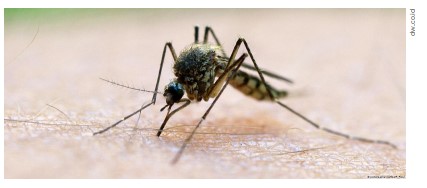https://westpapuatabloid.org/fighting-malaria-in-papua.html

The malaria drug crisis has begun to hit residents in Papua Province. The reason is that the stock of the malaria drug Artesunate is getting insufficient. This was conveyed by the Chairman of Strategic Papua Analysis (APS), Lous Deo Calvin Rumayom in Jayapura, Monday (8/8/2022), quoting papuainside.com. APS is recognized as a global professional community that exists in around 16 countries in the world. Artesunate is one of the drugs for severe malaria which makes patients require intensive care in the hospital.
This drug is given through intravenous injection. Lous Deo explained that his party received complaints from hospital directors in Papua that the number of malaria cases had increased, and certainly, the community would not be handled quickly. The Indonesian Ministry of Health, through the Papua Provincial Health Office, said that they had been working on the availability of the drug and were in the process of shipping them from China.
The difficulty faced in Papua, he said, was that the stock of malaria drugs only lasted 3.5 months. Meanwhile, in the next 3.5 months there must be more anticipation. According to him, his party has told the Deputy Minister for Foreign Affairs, Mahendra Siregar, to establish communication with the Indonesian Embassies in China, the United States and also India, to ensure that Artesunat producing countries provide the malaria drug. “Everyone just found out that taking care of drugs is not easy because it concerns bilateral and multilateral engagements in order that Artesunat can still be available,” he said.
The assertion of the malaria drug crisis is related to the drug mafia, Lous Deo explained. The suspicion exists as practitioners explain that they have submitted a request for malaria medicine, but it is not easy to get it. “So there are parties who regulate the flow of entry and exit and others, although it can be based on the rules. But it is also dominated by certain parties,” he explained.
Therefore, he added, Papua should have local regulations or Special Regional Regulations (Perdasus) on international cooperation, which gives the authority power to administer malaria drugs independently, especially because Papua is an area in Indonesia experiencing a malaria endemic. In addition, to overcome the malaria drug crisis, a Perdasus on local medicinal plants needs to be created as well as supported by laboratories, he said.
The reason is that scientists have worked hard to develop research to utilize existing pharmacies in order to enhance laboratories, so that they do not depend for Artesunate from China, the United States, India or other countries. “This is to anticipate the occurrence of a future embargo or an economic crisis as it will certainly make us collapse. Therefore, self-sufficiency in developing medicinal plants in Papua must be done,” he said.
He said that the Papua Health Service proposed that Freeport help establish a Job Training Center (BLK) at the Poltekkes Kemenkes Jayapura and Uncen Jayapura, which will train nurses and midwives in districts/cities in Papua in dealing with malaria. It turned out that malaria affects a pregnant mother’s fetus and those suffering from malaria with diarrhea. “So malaria treatment is most precarious for pregnant women and malaria that is associated with diarrhea,” he said. It is known that the number of malaria cases in 2001-2022 was quite high in Yahukimo Regency, reaching 38 patients. Meanwhile, in other regencies/cities, the average is relatively the same, but the figure will definitely increase when Artesunat is at a shortage.
Strategy in Handling Malaria
Malaria is still a dangerous infectious disease that threatens the health of the Papuan population. Quoting Suara.com, data from the Ministry of Health stated that Papua Province has a high endemic malaria disease status up to now, which is caused by a female Anopheles mosquito bite carrying the Plasmodium parasite. The Director of Prevention and Control of Vector and Zoonotic Diseases of the Indonesian Ministry of Health, Didik Budijanto, confirmed that the parasite has the ability to reproduce in the liver of a person who is bitten when the immune condition is weak.
Symptoms that arise as a result of this condition generally include fever, headache and nausea that appear a week after the mosquito bite. The Indonesian Ministry of Health also confirmed that at least 435,000 people in various parts of the world died from malaria. In fact, the trend of the number of cases tends to increase from year to year. Although, the trend of cases in all of the provinces in Indonesia is reported to have decreased from 465.7 thousand positive cases in 2010 to 235.7 thousand in 2020, however, Didik noted that 86 percent of the total malaria cases in Indonesia were contributed by the province, which is located on the western part of New Guinea Island. The rest came from West Papua and Maluku.
“There are four regencies/cities in Papua, all of which are malaria endemic, Jayapura City, Jayapura Regency, Merauke, and Timika. All of them are in the red category,” he said. Didik revealed a number of obstacles in achieving a Malaria-Free Indonesia 2030, including people who think that malaria is a common disease, so they don’t pay much attention. “This is to inform the public that though malaria can be prevented and treated, it can also cause death. Therefore, the concept of how to prevent this disease from happening in the community is a challenge,” he said.
